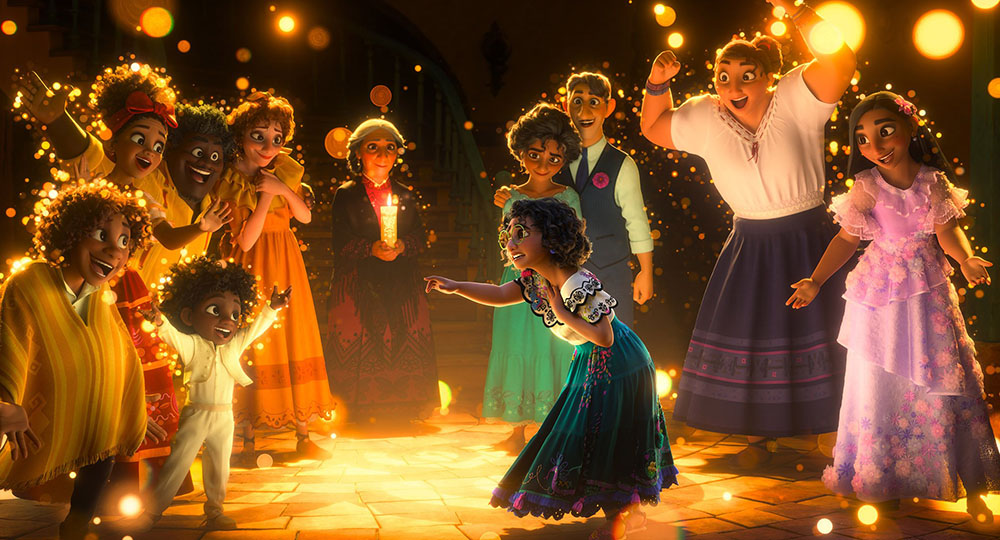
A scene from the movie "Encanto" (CNS/Disney)
Disney's new animated movie, "Encanto," provides deep insight into the spiritual nature of human beings and our yearning to encounter God.
Set in Colombia, the movie revolves around la familia Madrigal, a family blessed with an encanto, a magical enchantment that gives all the members of the family a gift. These include superhuman strength, the ability to communicate with animals, controlling the weather or shapeshifting. All members of the family receive their gift at age 6 and use it to help their village; all of them, that is, except Mirabel.
The movie, with music composed by the genius of Lin-Manuel Miranda, tackles intergenerational trauma and the pressure to uphold family expectations among complicated family dynamics and relationships. Being the only member of her family without a gift, Mirabel feels constantly neglected and rejected by her family, especially the family matriarch Abuela Alma, whose general attitude of disapproval toward Mirabel sets the foundation for Mirabel's feeling of not belonging.
All these feelings are captured in the song, "Waiting on a Miracle," in which Mirabel describes her yearning to belong, to be like the rest of her family. In a quasi-spiritual manner, she prays that she can be blessed with a miracle.
As I was rewatching the movie, a good friend pointed out a particular line in the song, where Mirabel sings: "I am ready, come on, I'm ready / I've been patient, and steadfast, and steady / bless me now as you blessed us all those years ago." Mirabel is longing, yearning for a gift, something out of the ordinary and grandiose to prove that she belongs, that she is worthy of her family's love.
She begs and pleads for something to happen. How often do we pray, and plead, and beg for God to perform something extraordinary in our life? How often are we waiting on a miracle?
Advertisement
Someone once told me that miracles are nothing but God's ordinary truth seen with surprised eyes. That which is surprising to us is recognizing God by who God is: an omnipotent being, capable of moving mountains and turning water into wine.
Yet too often these are the only actions that we think of as miraculous. How frequently, though, do we think of the mundane as miraculous as well? St. Ignatius reminds us that we can find God in all things since all creation reveals God's majesty and grandeur. God's presence is all around us, and recognizing that presence is recognizing a miracle.
Toward the end of the movie, Mirabel realizes that the true miracle is not the extraordinary gifts that her family has, but rather the ordinary ways in which they can show each other how they love, care for and support one another. She realizes, as do we, that the miracle that she is yearning for has been around her this whole time.
The real miracle is not strength, the ability to communicate with animals or shapeshifting. The miracle, as the last song reveals, is all of them, coming together, loving each other and embracing their true selves, without reservations, and unconditionally.
In one of the most moving scenes in the film, Mirabel and Abuela Alma talk by the river where the family's magic was born. The younger Madrigal acknowledges and centers Alma's pain and suffering at raising her three kids after losing her husband and home. Together, both women listen to one another and help each other heal.
Each family member, in one way or another, learns that the miracle — the magic — was in who God created them to be. They embrace and love every aspect of themselves, recognizing the fearful and wonderful miracle that we each possess as human beings.
"Encanto" is a story of self-discovery and self-worth, where the characters learn to embrace and love their true, authentic selves through intergenerational familial healing.
*An earlier version of this essay misspelled Mirabel's name.




